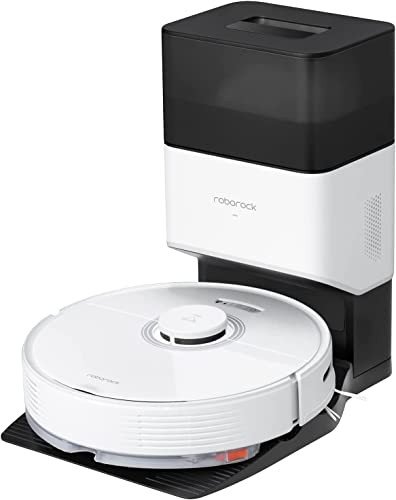The Rise of Autonomous Vacuums: Revolutionizing Home Cleaning
In the age of innovation, family chores are ending up being progressively automated, and one of the most significant improvements in this realm is the autonomous vacuum. These smart cleaning robotics are developed to reduce the drudgery of standard vacuuming, making them popular among time-strapped households. This article explores the evolution, performance, benefits, and limitations of autonomous vacuums, together with a comparison of some of the leading models on the market today.
What is an Autonomous Vacuum?
An autonomous vacuum, also called a robotic vacuum cleaner, is a small, automated gadget that browses through your home to tidy floorings without human intervention. Equipped with sensing units, video cameras, and advanced software, these vacuums can discover barriers, avoid stairs, and enhance cleaning paths. They usually operate from a rechargeable battery, going back to their charging stations when their power is low or when cleaning jobs are finished.
Key Features of Autonomous Vacuums
Smart Navigation:
- Utilizes sensing units and algorithms to map the environment.
- Can navigate complex designs and avoid barriers.
Scheduling:
- Allows users to set cleaning times.
- Can run when the home is empty, guaranteeing very little interruption.
Connectivity:
- Many designs link to Wi-Fi, permitting app control and combination with wise home systems.
- Users can customize settings, check cleaning status, and get alerts through mobile applications.
Suction Power:
- Varies between designs; some offer adjustable suction settings for different floor types.
- High-end models feature effective suction capable of picking up pet hair and deep dirt.
Floor Type Adaptability:
- Capable of cleaning carpets, hardwood, tiles, and more.
- Specific models concentrate on tailored cleaning for numerous surfaces.
The Advantages of Using Autonomous Vacuums
1. Time-Saving
One of the most significant advantages of autonomous vacuums is the quantity of time they save. Instead of investing hours pushing a standard vacuum, homeowners can set robotic vacuums to tidy while they are taken part in other activities.
2. Consistent Cleaning Schedule
With the ability to set up cleanings, these vacuums ensure that areas are regularly cleaned up, resulting in a cleaner home overall. Regular cleaning helps preserve indoor air quality, especially for households with allergies or asthma.
3. Smart Home Integration
Numerous autonomous vacuums can be integrated with clever home systems for smooth operation. Property owners can manage their vacuums via voice commands through gadgets like Amazon Alexa or Google Assistant, improving user benefit.
4. Compact Design
The slim profile of these gadgets allows them to clean under furnishings, such as sofas and beds, where standard vacuums often can not reach.
5. Pet-Friendly
For family pet owners, autonomous vacuums can be a game-changer, as they are often geared up with specialized features for getting pet hair and dander, contributing to a cleaner home environment.
Limitations of Autonomous Vacuums
In spite of their many benefits, autonomous vacuums likewise have constraints:
1. Limited Deep Cleaning
While these vacuums efficiently keep cleanliness, they may not replace the efficiency of a deep tidy provided by standard vacuums, particularly for greatly soiled locations.
2. Capability Constraints
The majority of autonomous vacuums included small dust bins that need to be cleared frequently, especially in bigger homes or homes with animals. auto vacuum can be a hassle for some users.
3. Navigation Challenges
Although navigation innovation is constantly improving, some models may have a hard time with specific layouts, particularly intricate areas with many challenges or really small rooms.
4. Price Point
While costs have ended up being more accessible, high-end designs can still be rather expensive, presenting a barrier for some customers.
Contrast of Top Autonomous Vacuum Models
| Model | Smart Features | Battery Life | Suction Strength | Cost Range |
|---|---|---|---|---|
| iRobot Roomba 980 | App Control, Voice Assistant | 120 minutes | 1700 Pa | ₤ 700 - ₤ 900 |
| Roborock S6 MaxV | Advanced Mapping, Connectable | 180 minutes | 2500 Pa | ₤ 600 - ₤ 800 |
| Ecovacs Deebot Ozmo | Mopping, Smart Home | 110 minutes | 1500 Pa | ₤ 450 - ₤ 700 |
| Neato Botvac D7 | Laser Navigation, Custom Zones | 120 minutes | 2000 Pa | ₤ 800 - ₤ 900 |
| Shark IQ Robot | Self-Emptying Base, Smart Map | 90 minutes | 1500 Pa | ₤ 400 - ₤ 600 |
Significant Takeaways
- Smart Features: Consumers ought to focus on designs using robust smart features for benefit and performance.
- Battery Life: A longer battery life is helpful for larger living areas.
- Suction Strength: Depending on home needs, varying suction power can substantially impact cleaning efficiency.
FAQs about Autonomous Vacuums
Q1: How do I keep my autonomous vacuum?
A: Regular upkeep includes cleaning the brushes, emptying the dustbin, and looking for obstructions. Furthermore, keeping the sensing units clean will assist preserve navigation precision.
Q2: Can robotic vacuums clean carpets and carpets?
A: Yes, lots of robotic vacuums are designed to successfully tidy both hard surfaces and carpets. Nevertheless, best robot vacuum cleaner UK might differ based upon the model.
Q3: Do robotic vacuums need Wi-Fi?
A: While numerous autonomous vacuums take advantage of Wi-Fi connectivity for app control and updates, some designs can operate separately without a cordless connection.
Q4: How often should I run my robotic vacuum?
A: It depends on your living situation, but running it several times a week is frequently suggested, particularly for homes with animals.
In conclusion, autonomous vacuums represent a substantial improvement in home cleaning innovation, promising benefit and efficiency. While these devices may not entirely replace conventional vacuum, they are certainly useful in preserving a clean living environment. As technology continues to evolve, the future of home cleaning looks promising, and these gadgets are at the leading edge of the revolution.

